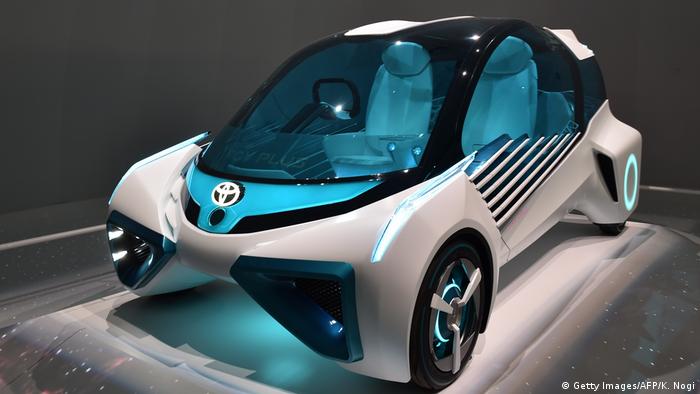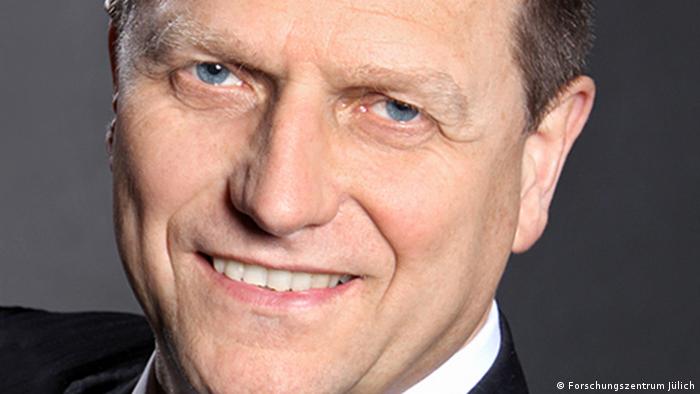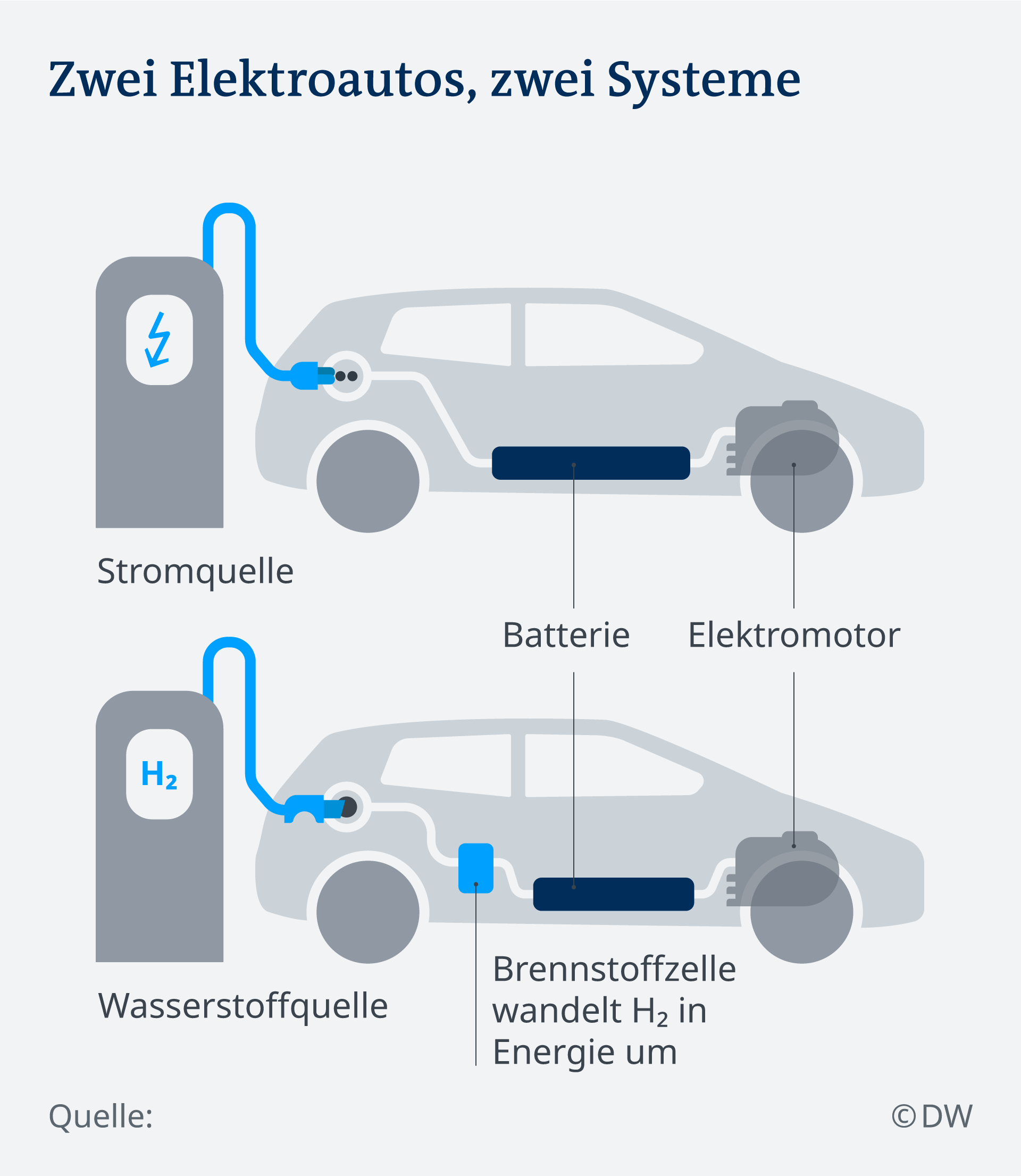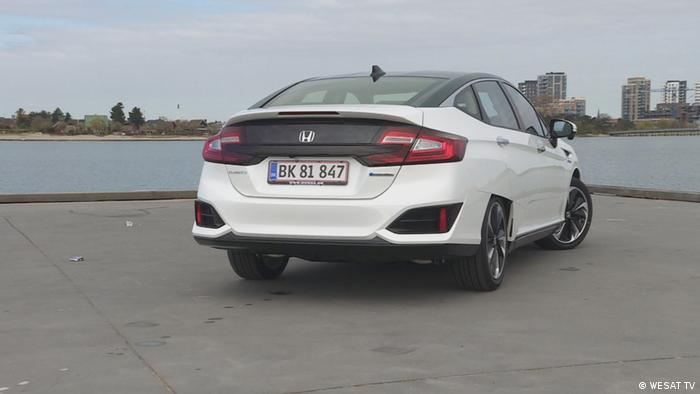Many car builders put in the future, especially on battery-driven electric cars. Nevertheless, there is no way around the fuel cell technology highlights fuel cells-researchers Detlef Stolten in the DW-Interview.

Can also convert hydrogen from an external Tank into electricity: fuel cell concept car from Toyota
Deutsche Welle: Why do you believe that the fuel cell is not yet logged out long ago?
Detlef Stolten: I’ve never seen them as logged out. The fuel cell has a very high efficiency, particularly in the transport sector. You are allowed a storage of energy, which is transported over several hundred kilometres. It is ecologically very useful and used in addition to hydrogen, a storage medium that we will need in the framework of the energy transition anyway. Because we need to store the electricity from renewable energy sources, because its production fluctuates and we are not able to consume the electricity directly.
This Surplus electricity can be for reasons of cost, in the long term, not in batteries, but in gases. This is why you will need anyway, is hydrogen, also for industrial processes. And if the hydrogen is in the infrastructure sufficiently, then the fuel cell is a very suitable unit, particularly for the transport sector.
There are other advantages as well: An engine that is operated with fuel cells, lasts about as long as a combustion engine. How about the price, when do you anticipate that there is a competitive price for fuel cell Car?

Clean mobility and a problem solver when Storing green electricity: For Detlef Stolten, fuel cell is a Mutlitalent
There have been strong improvements. Since the first vehicles, the performance is increased density of fuel cells by a factor of 10, the catalyst content is decreased by a factor of 10 and the life has a few hundred hours on the required 5000 hours increase. And all of this is, of course, heavily on the price. Even if we have made no detailed calculations: I expect that in the next ten years, fuel cells from the mass production of Cars economically will be.
In the case of battery-driven electric vehicles, many manufacturing steps are eliminated. It takes a lot much less components with electric drives, for example, couplings, and gear units are needed. This means that suppliers will have problems to market their products, which will also have an impact on Jobs. In the case of fuel cell vehicles, you don’t see this Problem so much. Why?
Fuel cells ensure the production depth of German car manufacturer
It is a low. I believe that there will be a change. A gearbox with seven, eight, or nine gears, you will no longer need. In the case of fuel cell vehicles, we also have an electric motor to the drive-the fuel cell provides the power instead of a battery. But the fuel cells of course, all the gas behind it. The whole System is on the manufacturer of the vehicles, some “process-dominant”. That is, there is a certain amount of procedural expenses in a fuel cell vehicle is necessary. And I just believe that cost reductions will take place to a considerable extent, but also more and more business go to waste, manufacturers utilize sense.
Nevertheless, the decrease in the fuel cell maintenance intervals. The brake will decrease wear and tear, because of the brakes, a regenerative – that is, during braking, energy is recovered. Also change the oil way to fall. The are many things that speak for this technology, both in ecological and in economic terms.

In the case of electric mobility, the largest part of the battery manufacturing more or less of the Asians, Germany is lagging behind. What are the opportunities for fuel cell technology?
We are simply not doing enough. It is very strong on battery drive, also in the case of large cars where you can’t actually see, for good reasons, that this is likely to be misleading. We are already technologically compared to the Japanese and Koreans to fall behind.
You can buy vehicles from Japan and Korea, which allow for a really good everyday operation. The ADAC has warms in his driving report positively about the Hyundai Nexo welded. In Germany, we have no fuel-cell vehicles, which deliver equivalent. The only manufacturer currently on the market, Daimler is the GLC F-CELL.
Hyundai, Toyota and Honda worldwide fuel cell vehicles a leader. Where are apart from Daimler, the German manufacturer from their point of view? Have the missed the train or is it still possible to join?
Whether or not one has missed a train, you can only say in hindsight. You can also adopt a Fast Follower strategy, where you can catch up very strong. I think it’s bad to say now: ‘We missed the train and throw in the towel.’ But I do believe that we must make great efforts to make up for that, what we once had. Germany was once with Daimler in the area of the fuel cell, a world leader, together with General Motors. Also, the Americans have missed in my eyes to complete the connection.
Buses and commercial vehicles to
What should happen in the next two to three years to get back the connection?
What would be important is that
Video 02 view:26 Share
Buses from bad air
Facebook Twitter google+ send Tumblr VZ Xing Newsvine Digg
Permalink https://p.dw.com/p/2xH17
Buses from bad air
Buses with fuel cells in the market. Since there is a demand, the operator of any German manufacturer. There are fuel cell buses from Solaris of Poland and van Hool from Belgium, which both work well. Both, however, are small companies with a manageable piece. Meanwhile, the environmental pressure has become so great that many operators would require to fuel cell buses, if you could. We are always asked if you can buy something already and if this is useful.
We currently have the world in the Relation of the moving vehicles to the existing hydrogen filling stations is far too little vehicles. California has very much more models with much less tank than we do. And this rate has moved very strongly to the gas stations, and we would need now is the vehicles.
Where in California are mainly Asian fuel cell vehicles are on the road…
You need to leave the development. America has a big car corporations. The need to build, then, or you are eventually out. Thus, the economy is.
World’s only fuel cell vehicles are allowed in the lower five-digit range, the vehicles are available with prices starting from around 70,000 Euro is still very expensive. What are the numbers it needs, so this Trend comes in, and that there are cheaper models, in order to move consumers on such vehicles to switch?

To have now: Honda Clarity fuel-cell drive
In the case of passenger Cars production of about 100,000 units per year, where a production is economical and feasible. This is a number that is the aim of the Asian manufacturers now. Hyundai is aiming to 9000 Cars in 2018, for this year of 50,000. As it comes closer and closer to the cost-effectiveness. In addition, there will be cost savings, for example by a technically improved and cost-effective catalysts and a better hybridization, so that the fuel cell is protected and at the same driving a longer life operation.
A mass production in the next ten years achievable?
I think that is highly likely. I also believe that you need this technology to store large quantities of electricity from renewable energy sources. We will have hydrogen that can be distributed through Pipelines, and in part converted Erdagsleitungen,.
This includes projects such as ‘Get H2 already exist’. The Pipeline-strands, which are not currently or in the next time used, and hydrogen and used can be converted. This could be used to transport hydrogen over long distances very easy and a nationwide hydrogen economy to build on.
Detlef, the Institute directs Stolten for electrochemical process engineering at the Jülich research centre and holds the chair for fuel cells at the faculty of mechanical engineering of the RWTH Aachen University.
The Interview was conducted by Thomas Kohlmann